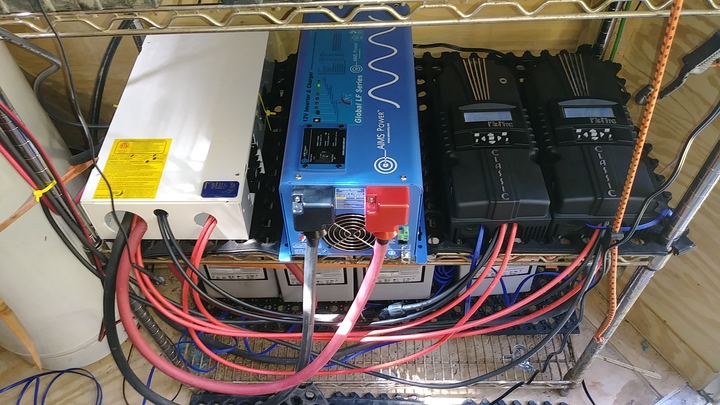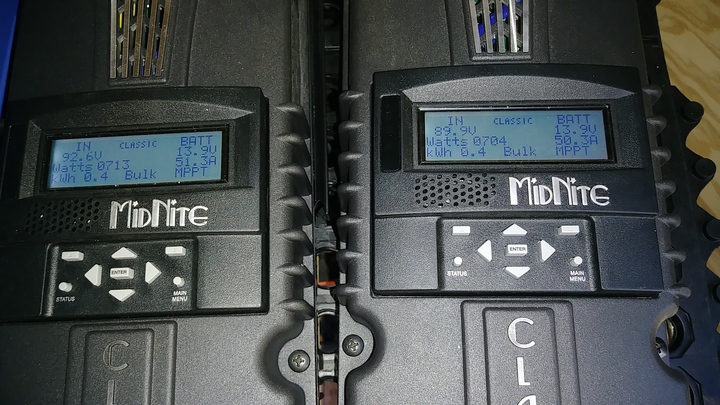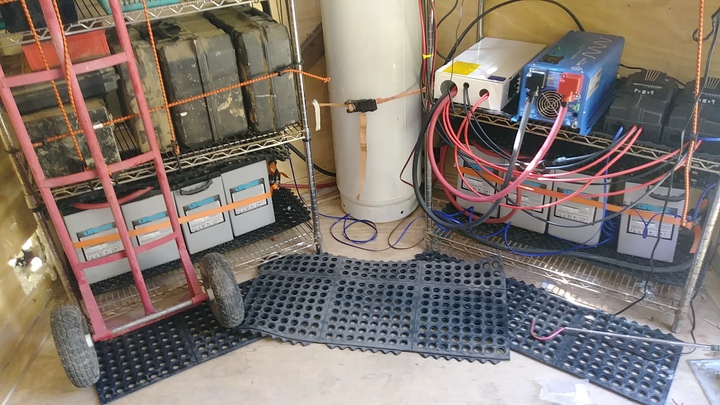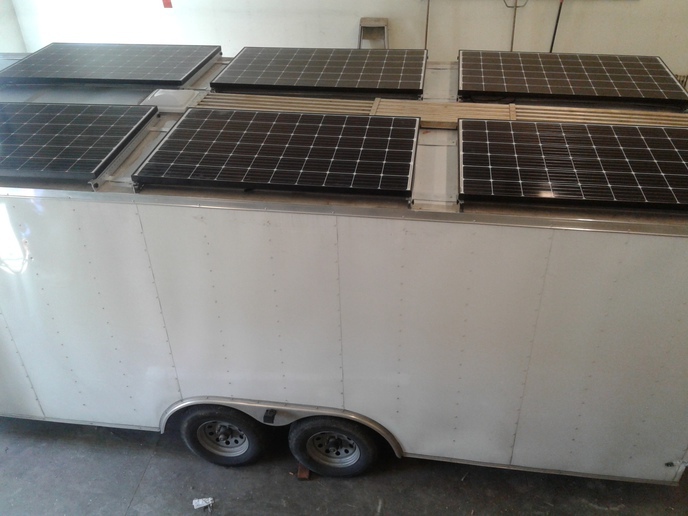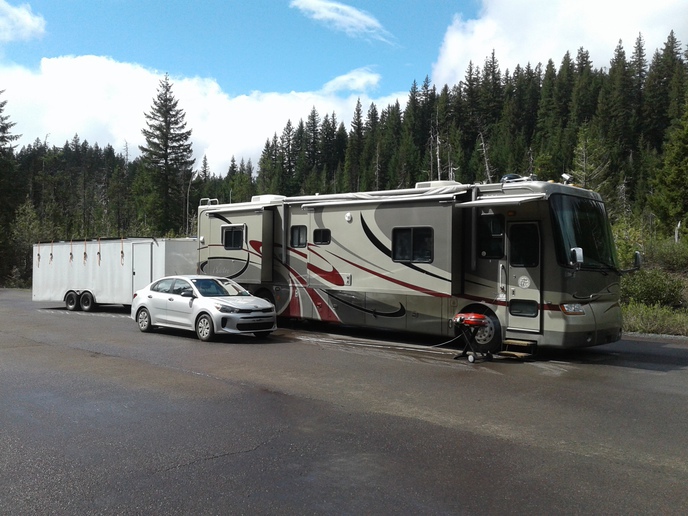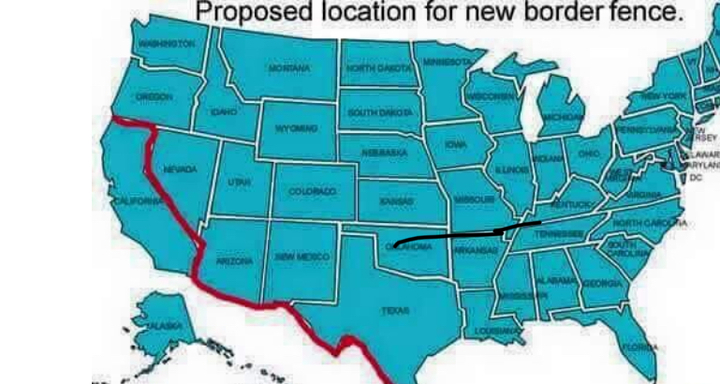We need a mix. We're not ready for 100% residential solar, but a little bit will help us learn what we need to know. PV on every house will cause more trouble than it's worth. Solar is very inefficient and [i:f4a057535d]producing[/i:f4a057535d] the PV arrays pollute more than burning coal. Payback times are on the order of the life of the panels, so it doesn't (yet) make economic sense, even with government subsidies in most locations.
[i:f4a057535d]California is blessed with lots of sunshine and it happens that sunshine and A/C seem to happen at the same time. That works well together. [/i:f4a057535d]
But not at the same [b:f4a057535d]place[/b:f4a057535d]. Too much residential solar leads to the curtailment mentioned above. Folks throttle back their AC and head into work. Lot's of power could [i:f4a057535d] potentially[/i:f4a057535d] be produced during the heat of the day, but it's needed in at work (to run those ACs, machinery, computers, etc), not out at the house. Our current grid is designed for one-way energy flow from the generators to the homes. It's not set up for large power flow the other way, and too much generation in the residential areas causes voltage spikes and damages equipment (both the inverters and the household stuff like expensive TVs and such). Hence the need to curtail and waste all of that potential power. We're working on solutions, but insisting on 100% solar at residences [b:f4a057535d]at this time[/b:f4a057535d] is counter-productive. Stupid "feel good" measures like the "coal fired" Prius the guys voting on this trash are driving.
This is just plain wrong. Without the PV we can burn cheap coal and nuclear for the base. When the clouds come over we've got to fire up short-term generators (natural gas if you're lucky, diesel in certain regions of the country at certain times of the year). This costs much more (in dollars) than just having the coal or nuclear base would have cost. The jury is still out on the pollution when all factors are considered (coal vs. diesel, coal comes in on a train vs. diesel being trucked in, etc) but it's a net loss if the pollution and resources to build and install the PV is considered.
Yep. Storage is key to using all of these non-dispatchable resources. If we can solve that residential solar for those on the grid will start to make economic sense (in [i:f4a057535d]some[/i:f4a057535d] cases, but never for everybody).
There are advantages and disadvantages, as discussed above. Having to curtail so as to not overload the grid when load drops during peak solar times adversely effects payback times and make solar even less economically viable. If we were designing from scratch with a new grid and business/residential mixed just right we could take much more advantage. Given the current grid and the existing locations of residential vs. business we have a lot of work to do to gain the theoretical benefits.
!
There's a lot wrong here that I would like to address. First, lets address the load issue. Our grid is designed to 'float' power. We can add in, or substitute power sources from hundreds, and sometimes thousands of miles away. Solar panels will work just fine s they are highly distributed, and are protected behind the transformer which steps the high voltage down to useable voltages at the home. Modern grid-tie inverters and cutouts will protect the grid from spikes. Any stray high voltage spikes that may get through the inverter will be saturated at the transformer, and the voltage will be converted to heat, and some ringing in the waveform momentarily.
The newest type of power dist transformers are better designed to incorporate solar panel supply current. and handle the reversal current more efficiently. Also, modern homes have dozens of 'always-on' devices which consume small amounts of current even during the day when homeowners are away. Since each home will have its own power source, all the power that would normally be downloaded from the central power plant will not be needed, and that power(and reserve) at the main power plant will be directed to those commercial needs as you mentioned.
A home panel grid-tie system is complex, and robust due to requirements of the local supplier. They will accurately phase-lock sense, and they will cut out within milliseconds of a loss of power from the grid. Fortunately, transformers don't know if they are step-down(distribution from central station) or step-up(many individual panel provider into grid). A home with ten 285W panels will put out a nominal 2000W under best-case mid-day conditions. If the home it's on is only using 200W/hour over the mid-day, there's plenty of current flowing right back out the home and up the wire, through the transformer, and into the grid. Multiply this by 100 homes, and you've got a nice pile of current flowing into the comm districts.
As for efficiency, PV has gotten much, much better in the past 10 years. While they are not as efficient as some other means, the payback for the [u:f4a057535d]mfg costs[/u:f4a057535d] has come down to 4-6 years for retail panels. The [u:f4a057535d]system[/u:f4a057535d] cost payback is around 7-15 years, depending on the panel system cost, size, price/KW, and the avoided or price paid by the util.
It is nearly ready for prime time with the price/KW falling by 65% in the past 10 years. Also, the modern panels have lifespan of more than 30 years now, with less than 15% output decline. Solar is great for off-grid. I've installed 4 off-grid systems, and only one grid-tie. Off grid is difficult to size, because most users don't realize how much power they use, or mis-use. One of my clients wanted a large fridge, and when I told them it would require ~$1800. in batteries to run continuous, they switched to a smaller LP fridge. Off grid lifestyle is quite a bit different than on-grid.
As for economic viability, it's not up to coal fired, or oil fired but getting better. And for place where there is infrastructure already in place, distributed power via solar is one plan. It may not be the best plan, but it's not the worst. One other benefit, Just like hiring a plumbing crew to come in and pipe 50 homes at a time, there is significant cost savings with scale. Having 50 grid-tie 2KW systems installed at once will cut about 25-40% of the retail price of a single home install.
I'm not fully sold, but my experience so far is that it might be a good idea for LA metro, SD metro, and inland areas. Coastal, not so much.


